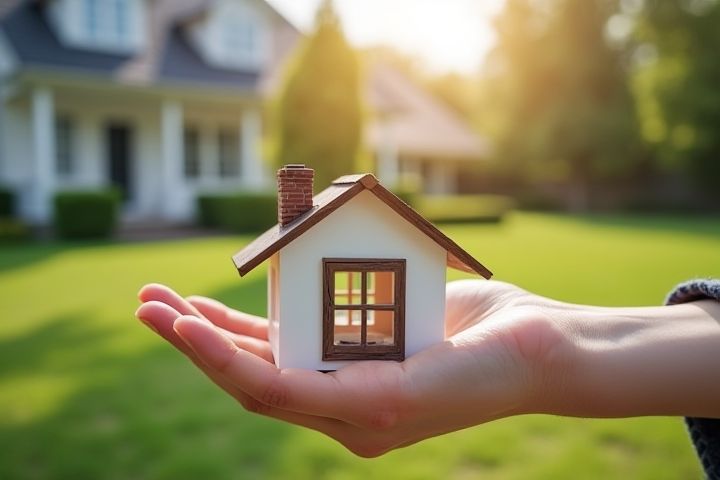
Several key factors influence house resale value, including location, property condition, and market trends. A prime location, close to amenities like schools, parks, and shopping centers, often leads to higher demand and greater resale potential. The overall condition of the property, including interior upgrades, curb appeal, and maintenance, also plays a critical role; well-maintained homes generally fetch higher prices. Seasonal trends and economic conditions, such as interest rates and local job markets, can impact buyer sentiment and subsequently, resale values. Understanding these elements can help you make informed decisions when buying or selling your property.
What Affects House Resale Value
Location
Location significantly influences house resale value due to various factors such as proximity to amenities, quality of local schools, and overall neighborhood safety. Properties situated near public transportation, shopping centers, parks, and recreational facilities usually command higher prices, attracting more potential buyers. Additionally, neighborhoods with low crime rates and a strong community presence often see increased demand, resulting in higher property values. Investing in areas with planned infrastructure improvements can also enhance your home's long-term resale potential.
Property condition
Property condition significantly impacts house resale value, as buyers often prioritize homes that are well-maintained and move-in ready. Factors such as the integrity of the roof, the condition of plumbing and electrical systems, and the overall aesthetic appeal of both the interior and exterior play crucial roles in determining perceived value. You might find that recent renovations or high-quality furnishings can enhance a property's attractiveness, thus increasing its market value. Regular maintenance and timely updates not only preserve but can also elevate your home's worth in a competitive real estate market.
Market trends
Market trends significantly influence house resale values, with factors such as demand and supply dynamics playing a crucial role. When a neighborhood experiences robust economic growth or infrastructure development, property values often rise due to increased buyer interest. Seasonal trends also impact market behavior, as properties typically sell for higher prices during peak buying seasons like spring and summer. Understanding these trends allows you to make informed decisions on when to sell or buy, maximizing your investment potential.
Neighborhood amenities
Neighborhood amenities significantly influence house resale value by directly impacting lifestyle and convenience for potential buyers. Access to quality schools, parks, public transportation, shopping centers, and recreational facilities can elevate the desirability of a location, making properties within such areas more sought after. Moreover, the presence of community features like swimming pools, gyms, and walking trails can enhance the living experience, leading to higher offers during resale. When considering a home purchase, you should prioritize neighborhoods with robust amenities to secure a better long-term investment.
School district quality
School district quality significantly influences house resale value, as families often prioritize educational opportunities for their children. Properties located within highly-rated school districts can see resale values increase by 10% to 20% compared to those in lower-rated areas. Homes in districts with strong academic performance, high graduation rates, and diverse extracurricular programs are particularly attractive to buyers. Investing in a home near reputable schools not only enhances your living experience but also provides a valuable long-term financial benefit.
Renovations and upgrades
Renovations and upgrades significantly influence house resale value, as they enhance both aesthetics and functionality. Kitchen remodels, particularly updates to appliances and countertops, typically yield high returns on investment, appealing to potential buyers looking for modern conveniences. Bathrooms also play a crucial role; features like whirlpool tubs, enhanced lighting, or energy-efficient fixtures can elevate buyer interest and perceived value. Additionally, curb appeal improvements, such as fresh landscaping and new siding, create a positive first impression, ultimately making your home more marketable.
Curb appeal
Curb appeal significantly influences a home's resale value, as first impressions are crucial in real estate. A well-maintained front yard, attractive landscaping, and a fresh coat of paint can increase perceived value by 10% to 15%. Factors such as the condition of the siding, the design of the entrance, and even the cleanliness of outdoor spaces contribute to buyers' perceptions. Investing in elements like outdoor lighting and contemporary mailboxes can enhance your home's attractiveness and ultimately lead to a quicker sale.
Size and layout
The size of a house significantly impacts its resale value, as larger homes typically attract more buyers and can command higher prices. A well-designed layout enhances functionality and maximizes space, creating a more appealing atmosphere for potential buyers. Open floor plans are particularly sought after, as they facilitate natural light flow and foster a sense of connectivity between living areas. Bedrooms and bathrooms should be proportionate to the home's size, ensuring a comfortable living experience that adds to your property's overall desirability.
Economic factors
Economic factors significantly influence house resale value, with local job market stability being paramount; a thriving economy typically correlates with increased demand for housing. Interest rates play a crucial role as well; lower mortgage rates can boost buyer purchasing power, thus raising home values. Additionally, economic indicators like inflation rates and consumer confidence impact how buyers perceive value, influencing their willingness to invest in properties. In regions experiencing rapid economic growth, you can generally expect your home's resale value to rise more sharply compared to areas with stagnant economic conditions.
Property tax rates
Property tax rates significantly impact house resale value, influencing potential buyers' financial considerations. Higher property tax rates can deter prospective buyers, as they add to monthly ownership costs and reduce overall affordability. In contrast, lower tax rates often enhance desirability, creating a more appealing market for sellers. This correlation underscores the importance of assessing local tax policies when determining your property's worth.
